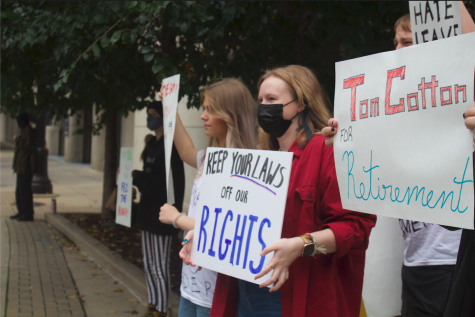State Supreme Court rules against Christian florist
Since the U.S. Supreme Court’s ruling in 2015 that same-sex marriage is a right that states must recognize, there have been several highly publicized stories involving Christian business owners who refuse to provide their services for the marriage ceremonies of LGBT individuals. The latest of these cases occurred in the state of Washington, where florist Barronnelle Stutzman refused to provide floral arrangements to a gay couple for their wedding.
In an opinion piece she wrote for the Seattle Times, she stated that she has no qualms with providing floral arrangements to LGBT individuals, but the action of arranging them for a wedding was an impossibility because of her faith.
“Surely without intending to do so,” Stutzman wrote, “Rob [one of the plaintiffs] was asking me to choose between my affection for him and my commitment to Christ.” In her deposition, however, she acknowledged that selling flowers “for an atheistic or Muslim wedding” would not infringe on her beliefs.
Robert Ingersoll had been a patron of Stutzman’s shop for a decade and had developed a friendship with her. Ingersoll described Stutzman’s shop as the “natural” choice for he and his fiancé, Curt Freed. Heartbroken by Stutzman’s refusal to provide flowers, they cancelled their plans for a large wedding, instead having a small in-home ceremony for fear of more discrimination.
Joined by the American Civil Liberties Union, the couple later sued, alleging they had been unlawfully discriminated against under Washington’s anti-discrimination law, which makes it illegal to refuse or withhold any public accommodations “regardless of … sexual orientation.”
Stutzman argued that she was not in violation of this law because she was willing to provide flowers, just not personalized arrangements as they were a form of “expression” she saw as protected under her right to free speech.
The court disagreed, saying the provision of “flowers for a wedding does not inherently express a message about that wedding.”
Concurring with the court’s opinion, Darren Walhof, a professor of political science visiting Calvin from Grand Valley, said Stutzman cannot claim her rights of free speech have been infringed because of this decision:
“She acknowledged in deposition that she provides arrangements for other weddings that she does not necessarily support. Given this, an observer would not be able to conclude anything about her support or lack of support for same-sex marriage simply by having her floral arrangements at the wedding.”
More distressing for religious freedom advocates, and encouraging for LGBT rights groups, was the court’s finding that “discrimination based on same-sex marriage constitutes discrimination on the basis of sexual orientation.”
Professor Micah Watson of Calvin’s political science department took a different view: “[There is a] distinction between serving customers who come into a store, and knowingly participating in, or contributing to, a religious ceremony,” he says. “I do think Barronnelle Stutzman’s rights were violated insofar as I think the government should pass a very high bar before requiring any business to participate in, or contribute to, a ceremony or event the business owners find objectionable.”
Walhof, on the other hand, saw an important place for such laws: “Courts are rightly reluctant to grant exemptions to anti-discrimination laws … because the exemptions undermine the purpose of such laws, which is to ensure that persons can engage in commerce freely and equally without having to worry about being denied service because of their … sexual orientation.”
At its heart, this issue juxtaposes the rights of religious business owners in the public marketplace with the rights of LGBT couples who seek to participate in that marketplace. Watson does not see these rights as being incompatible:
“There has to be a better way of expressing disapproval of someone else’s moral or religious convictions than potentially putting them out of business through the coercive use of the law.” He went on to suggest that in the future, LGBT couples will likely go to other vendors, rather than court.
A case such as this often turns heads at an institution like Calvin. The staff handbook currently states that the college has the right to “lawfully discriminate on the basis of religious and confessional criteria in its hiring, personnel practices and admissions.” Though it states it is an equal opportunity employer with regards to marital status and sexual orientation, it is clear that only heterosexual marriage is acceptable for a college employee.
Though Watson worries about the potential impact of this and similar cases on an institution like Calvin, Walhof does not:
“So as long as a religious institution makes it clear in its statements of faith that same-sex marriage violates its religious beliefs, it will likely be free to refuse to hire persons in such marriages or to fire employees who enter into a same-sex marriage.”








